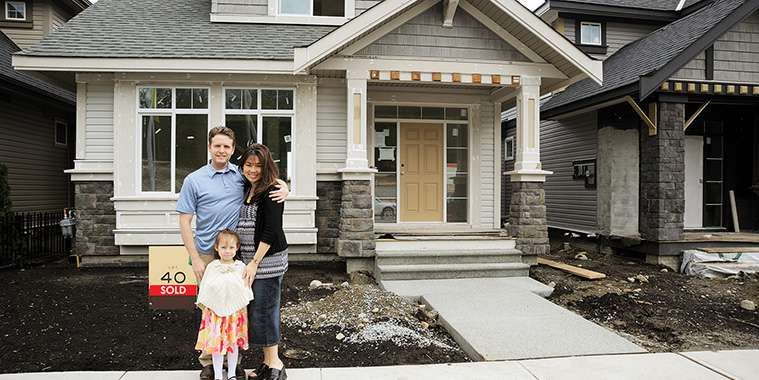By Peter Squire
We’re down to less than a week before the October 26th civic election. Soon enough we’re going to find out, once the results are official, who will be our mayor and 15 city councillors to lead the City of Winnipeg over the next four years.
While the race for city councillor positions have been far less visible in our consciousness and media coverage — in comparison to the extensive spotlight on the many mayoral candidates running to replace departing Mayor Bowman after serving two consecutive four-year terms — all 16 members of City Council will figure prominently in coming together and getting down to the business of making City Hall work while delivering good value and services to its citizens.
The Winnipeg Regional Real Estate Board embarked on its own campaign to bring awareness to civic issues we deem important to the City moving forward and progressing on meeting key milestones such as providing enough adequate housing to serve its population now and well into the future. Winnipeg is at risk of losing its comparative affordability advantage if it does not address this issue.
Can we keep Winnipeg affordable relative to far more expensive cities in the country who are losing younger, talented people to cities like Calgary, where they are aggressively pursuing their affordability advantage to build their future? To this point, in a year showing less active MLS® sales including within Winnipeg, where its affordable condominium property type sales are down nearly 10% from the same period in 2021, a recent RE/MAX condominium report indicated Calgary’s condominium sales are up a staggering 65% when you compare year-to-date sales to the end of August to the same period in 2021. The report mentions that people are pouring in from both Ontario and British Columbia.
MLS® market share for condominiums in Calgary is now at 20% while it is 25% in Edmonton and Ottawa. Winnipeg’s sits at 15% this year.
We know in a city that needs to encourage more infill in the built-up area of the city as per the recently approved Complete Communities Direction Strategy 2.0, a wider mix of housing, including apartment-style condos, is necessary to build a more fiscally sustainable city. It means increasing density as we are starting to see along major corridors such as Pembina Highway.
Over the summer, the Board interviewed all 14 mayoral candidates as part of an ongoing series. You can scan the QR code in our ad on page 4 and listen to what each of the hopefuls had to say. It’s worth a listen as it will help you make an informed choice when voting day rolls around. The five key questions we asked each of the candidates were:
• What strategies will you implement to reverse the trend we are seeing where more people are leaving our city to go to other provinces than coming here?
• What are your strategies to attract business investment to Winnipeg? What sectors to do you believe should be focused on?
• What steps will you take to address the issue of Manitoba being one of the provinces with a chronic shortage of residential dwelling units?
• How will you build and lead a team at City Council to ensure we receive funding to support growth enabling infrastructure?
• What benchmarks and actions will you take to move key projects that sustain delivery of core civic services ahead faster?
In terms of Manitoba’s — and therefore Winnipeg’s — need to increase its housing supply, both ScotiaBank and the Canadian Mortgage and Housing Corporation (CMHC) weighed in on this issue in 2022. The message we got was that we had better get building new homes and renewing our older housing stock or we will see house prices soar as they did earlier this year when inventory was so depleted from the record-shattering sales in 2021.
ScotiaBank has identified Manitoba as one of three provinces with the lowest number of housing units per capita (with a shortfall of 23,000 units) in the country, well below the national average, while Canada is the lowest of the G7. With high expectations of strong immigration to Canada and Manitoba over the next few years, our population will continue to grow and require more housing units to meet this demand. Demographics also point to a need to build more housing in the next few years.
CMHC, in a June 2022 report about solving Canada’s housing affordability crisis, said that by 2030 we need to build an additional 3.5 million housing units beyond current projections — with Manitoba requiring 260,000. Whether these numbers are achievable — given all the issues surrounding the need to accelerate construction while paying for and creating the infrastructure to facilitate new development — it drives home the magnitude of what we must do to get in front of this housing affordability issue.
Mayoral candidates as a whole failed to address this serious issue in the podcasts, which shows there’s still work left to do to impress upon our future mayor and city councillors the challenge ahead. In fairness, some candidates did talk about getting more aggressive about zoning for higher density housing and building infrastructure to create more housing supply. Whoever becomes our next mayor has an excellent opportunity at the outset of this upcoming four-year term to establish the leadership and teamwork necessary to set the stage for future growth and development by guiding the critical and far-reaching Transportation Master Plan 2050 to completion, as it is currently before city council to consult on and approve in 2023.
As a title sponsor of the Winnipeg Chamber of Commerce’s mayoral debate on October 21, the Winnipeg Regional Real Estate Board has another chance to hear how mayoral candidates consider the importance of housing affordability and supply to retain and attract people to our city, as the Board had direct input on a moderator question in this regard.
It is important to note that the Board was also involved in sponsoring a mayoral candidate forum on growing the economy with a number of leading industry associations such as the Manitoba Heavy Construction Association, the Winnipeg Construction Association and the Manitoba Home Builders’ Association, which got the mayoral candidates to address what strategy they have to grow our local economy to increase Winnipeg’s tax base. Infrastructure development and maintenance was also addressed.
The time is now to get out and vote. So do your civic duty and exercise your right to determine who will be our new City of Winnipeg mayor and 13 city councillors for the 2022 to 2026 four-year term. Councillors’ Devi Sharma and Markus Chambers have been acclaimed with no one challenging these incumbents.
To watch the voting live on October 26, the Association of Manitoba Municipalities has done a terrific job of putting together an interactive map of the province that will feature live voting results. Go to mbvotes.ca on election day to check out the live results as the votes are counted.
Peter Squire is the Winnipeg Regional Real Estate Board’s Vice-President External Relations & Market Intelligence.
Listen to the Podcasts now



